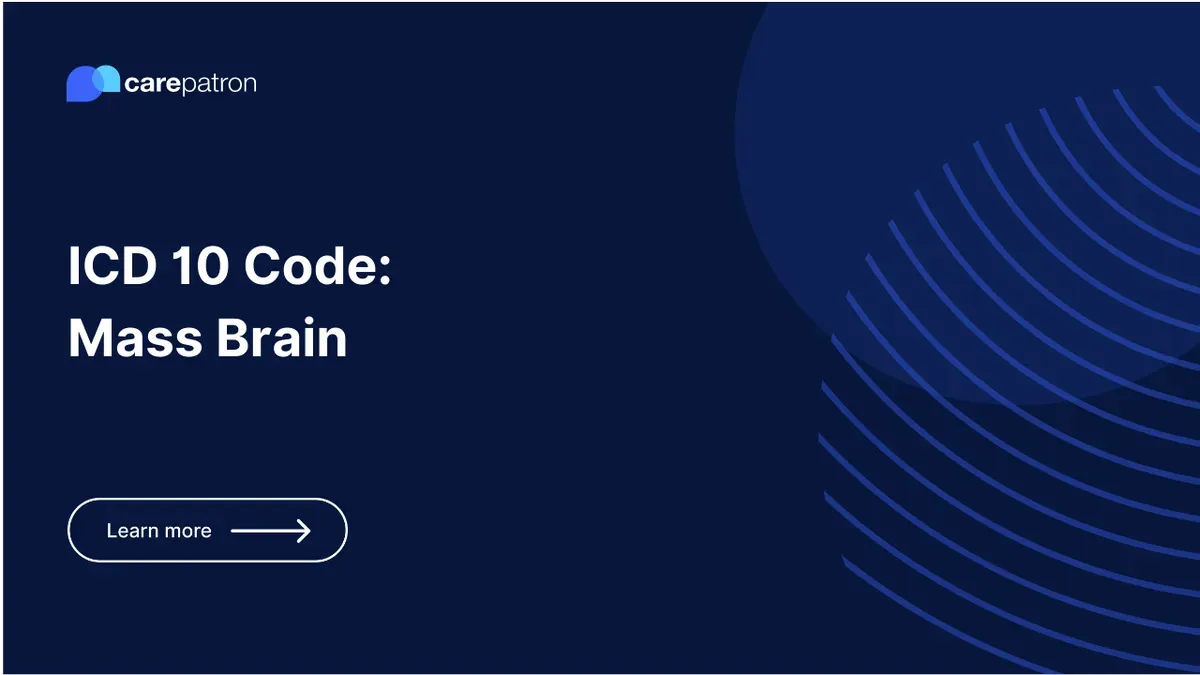
Mass Brain ICD-10-CM Codes
Get a comprehensive view of Mass Brain ICD-10-CM codes for 2023: Unearth prevalent codes, billability, clinical specifics, synonyms, and answers to FAQs.
Use Code
Commonly asked questions
Symptoms of a brain mass can include headaches, seizures, vision problems, balance issues, behavioral changes, and neurological deficits, depending on the mass's location and size.
Treatment for a brain mass depends on the mass's type, size, location, and the patient's overall health. It may involve surgery, radiation therapy, chemotherapy, or a combination.
Yes, a brain mass can be benign or non-cancerous. However, even benign brain masses can cause serious problems depending on their location and if they put pressure on surrounding brain tissue.
EHR and practice management software
Get started for free
*No credit card required
Free
$0/usd
Unlimited clients
Telehealth
1GB of storage
Client portal text
Automated billing and online payments
